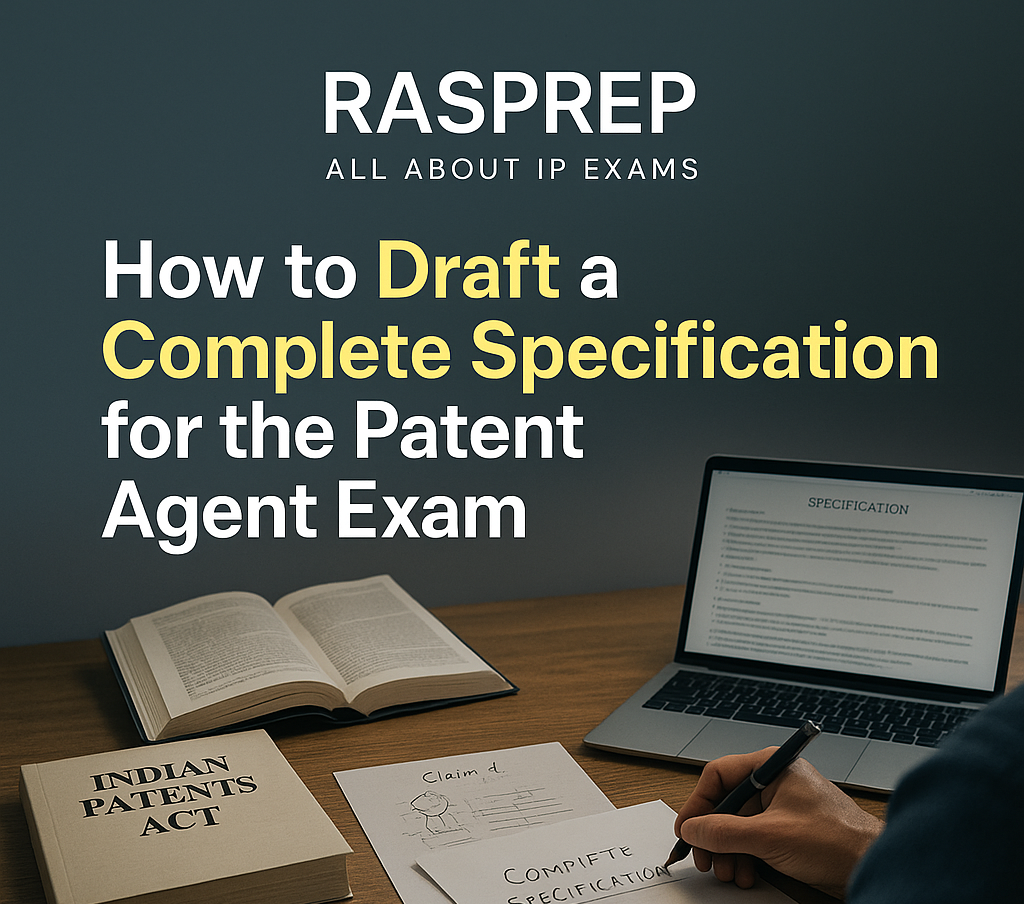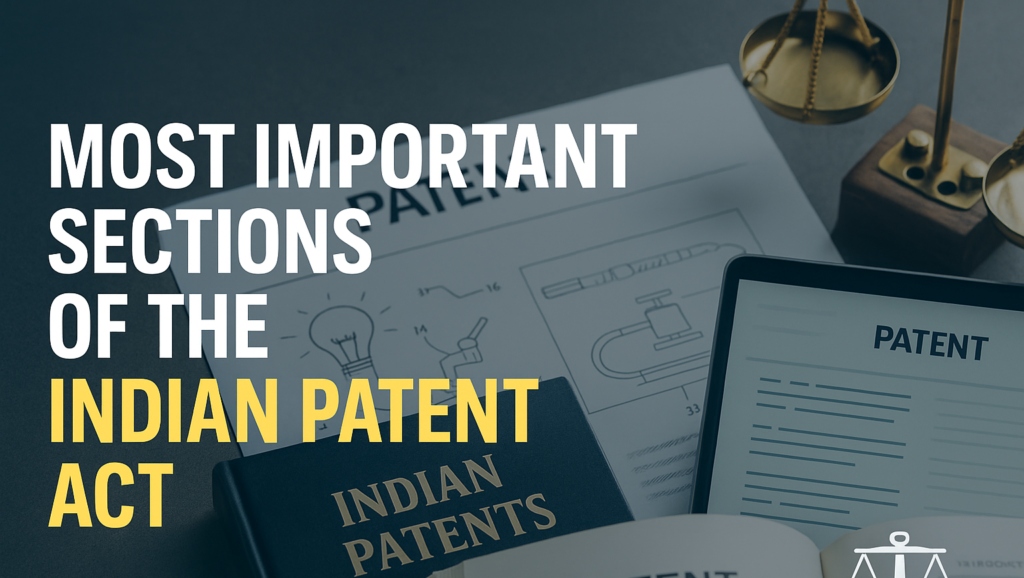If you’re eyeing a career in intellectual property, you’ve probably heard of the Patent Agent Exam. In India, this is your official entry point into a space where tech meets law. Once you’re certified, you get the legal green light to help inventors draft, file, and prosecute patent applications before the Indian Patent Office. Sounds legit, right?
But here’s the thing—it’s not a walk in the park. The exam is rigorous, detailed, and frankly, a bit of a grind if you’re going in without a plan.
So, let’s break it down. Whether you’re a techie with a flair for legal structure or a student figuring out your next move, this guide walks you through how to crack the exam smartly—not just slog through it blindly.
First, Understand the Patent Agent Exam Layout (It Matters More Than You Think)
Before you bury your head in study materials, it’s important to know what you’re dealing with. The Indian Patent Agent Exam has three core parts:
Paper I: Objective-Type Questions
This tests your grasp of the Indian Patents Act, rules, definitions, deadlines, and general IP terminology.
Paper II: Descriptive-Type Answers
Here’s where it gets real. You’ll need to draft claims, write responses, and interpret patent law in practical scenarios. Think writing legalese—but for engineers.
Viva Voce: The Oral Round
The final stretch. You sit across from experts and explain how you’d apply IP law in real-world cases. It’s not just about knowing the law—it’s about showing you understand how to use it.
Step-by-Step Strategy to Nail Your Preparation
Let’s move into how to actually prep smartly, not just hard.
1. Master the Indian Patents Act and Rules
Start with the basics: the Indian Patents Act, 1970, and Patent Rules, 2003. This is your exam Bible. Focus on areas like:
- What counts as not patentable
- How patent applications are submitted and processed
- Publication, examination, and opposition timelines
- How infringement cases are handled
Pro tip: Don’t just read—annotate. Highlight terms. Make flashcards. Quiz yourself on timelines and sections. Trust me, this helps more than passive reading.
2. Don’t Go Solo — Join a Proper Patent Agent Exam Preparation Program
Yes, you can prep alone. But should you?
A well-structured training program saves you from drowning in unfiltered information. These programs are usually designed by seasoned patent professionals who’ve taken the exam themselves.
Here’s what to look for:
- A clear syllabus roadmap
- Trainers who can simplify legal jargon
- Mock tests with real exam difficulty
- Practice drafting exercises based on actual scenarios
A good program helps you move from theory overload to practical clarity.
3. Need Flexibility? Try a Patent Agent Exam Preparation Online Course
If you’re balancing a full-time job or college, self-paced online learning can be a lifesaver.
Look for a patent agent exam preparation online course that offers:
- Pre-recorded and live video lectures
- Downloadable resources and notes
- Interactive assignments and test quizzes
- Lifetime access so you can revisit stuff later
Courses that blend structure with flexibility can be a game-changer—especially if you’re prepping on nights and weekends.
4. Drafting is Make-or-Break. Practice It Daily.
Paper II is usually where people struggle the most. Why? Because drafting patent claims isn’t something you can just memorize.
You’ve got to build the skill.
Ways to get better:
- Study patent samples from the Indian Patent Office’s website
- Understand how claims are grouped—independent vs dependent
- Practice writing for imaginary inventions
- Learn the tone, phrasing, and format used in legal specs
And don’t just write. Ask for feedback—preferably from someone who’s been through the process or is mentoring you in a training program.
5. Master Your Time and Revisions
There’s a ton to cover, and if you’re not managing your time, it’s easy to feel buried.
Here’s how to avoid that:
Time Management Tips:
- Break your prep into weekly milestones
- Prioritize difficult sections early on
- Don’t study everything every day—use rotation
- Track your hours (use Notion, Google Calendar, or even a journal)
For revision:
- Use mind maps for overview topics
- Create one-pagers for each Act section
- Simulate real-time mock exams
- Quiz yourself weekly to test retention
Repetition helps you lock in the structure and language of the law—without burning out.
6. Don’t Brush Off the Viva Voce of Patent Agent Exam
A lot of people treat the viva like an afterthought. Huge mistake.
This round checks how well you can think on your feet, communicate clearly, and connect legal theory to real-life IP scenarios.
Here’s how to prep:
- Go over major sections of the Act again
- Practice mock interviews with friends or mentors
- Stay current with IP news or landmark judgments
- Work on how you explain things—keep it clear, concise, and confident
Some training courses include viva modules, and honestly, they’re worth it. They give you a safe space to fumble before the real deal.
Choosing the Right Patent Training Course
Don’t just enroll in the one with flashy marketing. Ask these questions first:
- Are the trainers IP lawyers or ex-patent agents?
- Is the material updated with recent amendments?
- Are there regular mock tests and draft reviews?
- Can you speak to or learn from past students?
- Do they offer help with career paths after the exam?
The best courses will teach you how to pass—but also how to thrive once you do.
Common Mistakes (Let’s Help You Avoid Them)
You’d be surprised how many candidates fall into the same traps:
Skipping the drafting section – This part is heavily weighted, and no, you can’t cram for it.
Cramming everything in one go – Spread out your prep and revise often.
Ignoring mocks – Knowing isn’t enough. Practicing under pressure is how you build speed.
Using outdated material – Laws change. So should your prep resources.
Final Thoughts — Smart Prep Wins the Game
Becoming a registered patent agent in India can open doors to roles in law firms, R&D departments, startups, universities, and even government IP cells. But the exam? It demands more than effort. It needs a game plan.
Start with the basics, get a structured training program (or online course), and then practice, revise, repeat. With the right mindset and prep strategy, you can walk into that exam room ready—not rattled.
It’s not an easy journey, but it’s one worth taking. So go ahead—set your calendar, prep smart, and make it happen.





